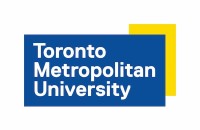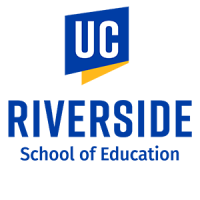Tailored Resume or One Size Fits All?
Clients often ask one of two questions: (1) Should I tailor my resume specifically to fit each position I want to pursue? (2) Can I use one general resume for several different jobs?
The short answer to both questions is the same: It depends! Seriously, you need to consider multiple issues when deciding just how tailored a resume should be. The answer will depend to a certain extent on the circumstances of each situation.
For example: When you build your resume around a specific opportunity, you largely exclude information that doesn’t show direct relevance to the targeted position. That means the resume probably can’t be used to pursue other opportunities. It would need revision to be suitable—possibly major revision.
If you’re planning a very limited, selective job search, that might not be a problem. However, what if you need to cast a wider net? Say you’re fortunate enough to find 15-20 openings you want to respond to. Are you going to create that many distinctive, one-time-only resumes? It would be a lot of work, for one thing.
Also, if you do too obvious a job of tailoring the resume, people on the receiving end might wonder what you’re not telling them that they might want or need to know. The possibility exists that you could cause a mildly suspicious reaction, which is directly opposite to the kind of response you want to achieve.
On the other hand, the problem with a one-size-fits-all resume is that it doesn’t. Fit all, that is. In almost all cases, it ends up fitting badly—that is, not representing you the way you need and want to be represented. It’s unlikely to create a strong impression on employers and might not even make it out of the searchable database pool it fell into when you submitted it.
Part of the difficulty is that this approach can give employers the impression you haven’t decided what you want to be when you grow up. You’ve made it so vague or general that it fails to deliver a clear and compelling value-added message to prospective employers. It smacks of the “I Just need a job” attitude. Unfortunately, that lumps you in with a lot of other job seekers instead of helping you stand out from them.
These are, of course, two extremes, which have substantial middle-ground room in between. Here are just XX examples of options you might consider:
1. Some customizing of your resume could prove beneficial in the right situation, if done carefully. The main caution here is to ensure you don’t end up with too many versions that will all need updating as time goes on. That could become a logistical headache.
2. You might pick, say, two possible job targets and create two versions of the same basic resume in which you choose which information to highlight (the order it’s presented in, etc.) in order to focus attention on the direction you want to go with that version. Worst case, then, you only have two versions to update over time.
3. Analysis and prioritizing of requirements for positions you might like to pursue could give you some clues as to how to prepare a resume that’s not individually tailored but does cover the essential bases well. A look at several job postings, for example, can suggest common themes that those employers consider hot buttons. Assuming you have them in your background and capabilities, you would want to highlight those aspects.
Bear in mind that online job boards aren’t your friend when it comes to going after opportunities in a general—or more than one direction—manner. They usually make you choose, if you hope to have any chance of going anywhere with the submission. In other words, sooner or later, you’ll probably have to make a choice. You really can’t be all things to all people and do it effectively.
In a nutshell, your resume needs to convince busy employers that you would be well worth their while to talk to, and it needs to make it easy for them to reach that conclusion. Tailored or general, or somewhere in between—what matters most is striking a responsive chord with employers. If you look valuable to them, that’s the first step to landing an interview.
__________
Since 1993, Georgia Adamson, owner of A Successful Career, has partnered with clients to present their qualifications and strengths compellingly to the employers they are targeting. As a career industry professional with a commitment to maintaining a high level of excellence, she holds several certifications, including Master Resume Writer (MRW)
Adamson offers diverse services to help job seekers achieve their career goals, including resume and cover letter writing, interview coaching, job search coaching, and LinkedIn profile development. She works extensively with senior managers and executives in a variety of industries and fields, both within the United States and internationally.



